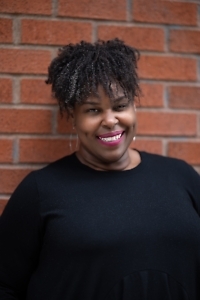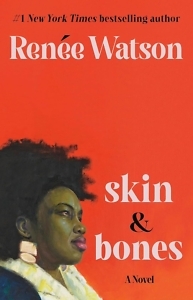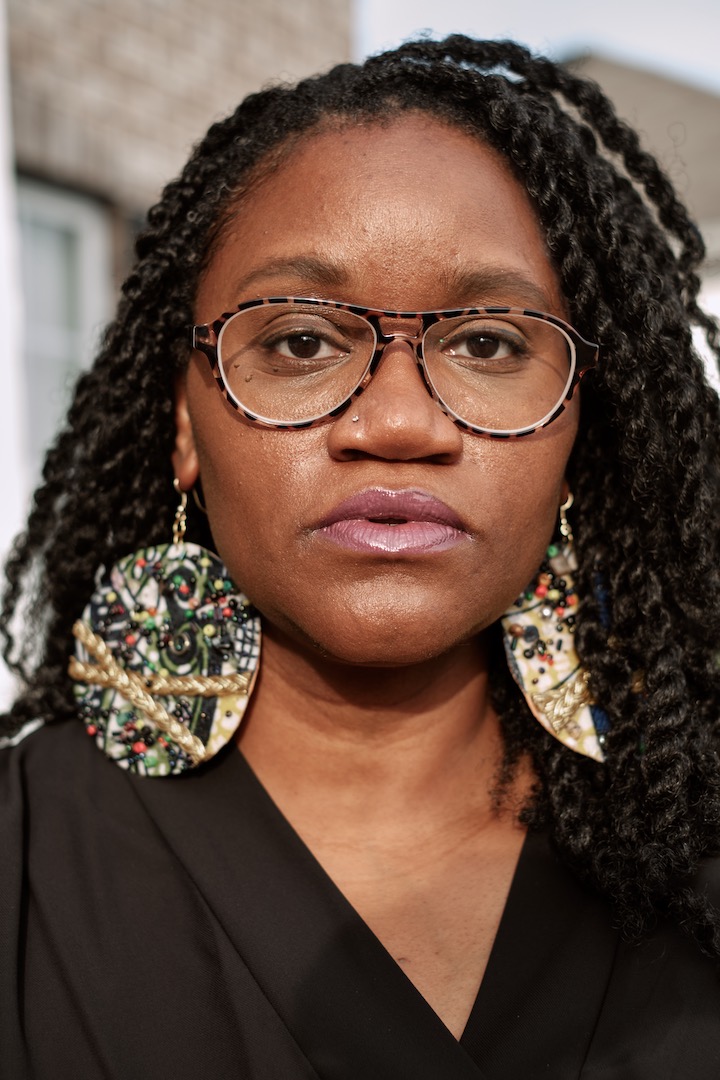Taking Up Space on the Page
Renée Watson makes room for Black women in a divine exploration of family, friendship, and romance
Renée Watson, who is best known for penning award-winning children’s books that celebrate Black girlhood, stuns with her debut as a novelist. Told through the lens of a 40-year-old protagonist, Lena Baker, skin & bones’ lyrical prose and poetic vignettes examine nuanced dynamics of family and friendship, Portland’s undertold Black history, and American society’s unrelenting fatphobia and unrealistic beauty standards.

An extension of the character archetypes in Watson’s books for young readers, skin & bones’ layered cast exemplifies unapologetic Black love — from Lena’s childhood friends to her supportive, church-going family to her compassionate and patient fiancé. The reader, through rich storylines and dynamic characters, observes love of self, love of family, love of culture, and love of community.
In the opening chapter, “the weight i carry,” Lena confronts a biased healthcare system — a common occurrence, not just in Watson’s fictional world but in real life. Medical professionals assume she is suffering from a weight-related illness (as opposed to a bladder infection), and she is reminded of the widespread biases about fat people being disassociated from good health.
After several microaggressions from a “wafer woman” of a nurse, Lena vacillates between questioning why the world sees her as “morbid” to appreciating every ounce of her physical body. “Everything about me is big and Black. Big and majestic like the ocean,” reads a line on the first page of the novel. Here the reader feels what it’s like to be a fat Black woman in America, existing in a body that is hyper-visible, yet not visible at all. Whether struggling to get proper seating accommodations at a restaurant, being called “pretty” despite her weight, or trying to find the perfect wedding dress, Lena continues to navigate anti-fat and anti-Black bias throughout the novel. These incidents let the reader see how fat Black women steer boats through the rocky waters of American society’s traditional beauty standards.
The style and structure of this novel are unique and creatively deliberate. With intricate chapters ranging from one-line sentences to short vignettes to longer stretches of prose (and even a peach cobbler recipe!), the novel in its entirety reflects the nonlinear structure of real, human life. Bite-sized chunks coupled with adequate stream of consciousness make the 400-plus pages of this book both digestible and highly relatable.
 Despite her painful encounters with bias, it is with her family and close friendships that Lena feels the safest. Although separated from her child’s father, Lena is raising her young daughter in Portland around a loving family and close childhood friends, Aspen and Kendra. Additionally, Lena is engaged to Malcolm Wilson, an assistant pastor at her father’s church.
Despite her painful encounters with bias, it is with her family and close friendships that Lena feels the safest. Although separated from her child’s father, Lena is raising her young daughter in Portland around a loving family and close childhood friends, Aspen and Kendra. Additionally, Lena is engaged to Malcolm Wilson, an assistant pastor at her father’s church.
Lena’s job as the director of diversity, equity, and inclusion (DEI) for Multnomah County’s public library system anchors the novel’s vital historical context, in which the undertold histories of Black Portland take center stage. Lena, who grew up in Portland, finds her way back to the city, and as an adult, challenges the mainstream’s depiction of the Pacific Northwest, which is typically homogeneous and — thanks to redlining and flooding — intentionally white. Although fictional, Watson imaginatively inserts history not told by dominant culture, but instead by the Black people whose lived experiences often go unheard.
On Lena and Malcolm’s wedding day, Malcolm divulges an untruth, prompting Lena to face this betrayal head on. In doing so, she also finds herself grappling with the ever-present themes of existing as a middle-aged, fat Black woman. Lena (and the reader) understands that parenthood, family, friendships, and partnerships are also uniquely tied to American racism.
It’s clear that Watson prioritizes making space for Black girlhood and womanhood on the page. This adult novel shows how her previous girl characters blossom into confident and self-confident adults, humanizing and authenticating the nuanced experiences of Black girls and women everywhere. Watson’s entire body of literary work is a love letter to Black women from birth to the ancestral realm.
Watson has mastered the full spectrum of human emotion in skin & bones, clearly defying the notion that Black lives are monolithic in nature. Each character experiences joy, heartache, and bliss, all while reckoning with deep traumas and difficult narratives from the past. Watson has also masterfully presented a glass door for all readers: the universal and timeless investigation of personhood.
Renée Watson’s debut as an adult novelist solidifies the depth of her body of work as necessary for the canon of American literature.

Tonya Abari is a Nashville-based independent journalist, author, essayist, book reviewer, and homeschooling parent. Her words have been published in Nashville Scene, Essence, USA Today, Publishers Weekly, Parents, Good Housekeeping, PBS Kids, and many more. You can find her hanging out on Instagram @iamtabari.


